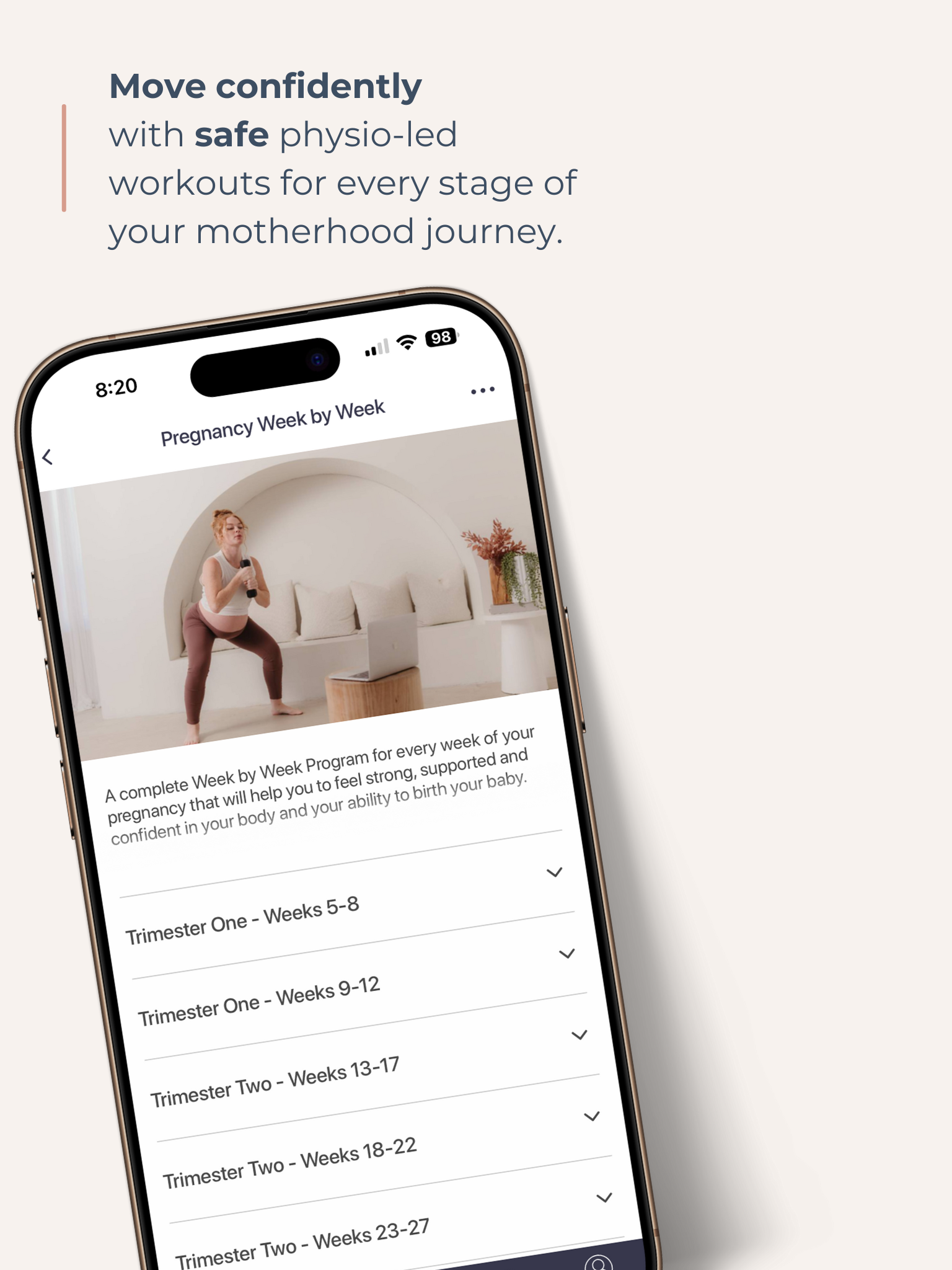Should I have a Birth Debrief to help process my birth?

Written by Dr Rosie Pajak - Perinatal Psychologist and Founder of The Birth Healing Collective
Birth is an incredibly important, intensely physical and emotional experience for mothers. Part of my work as a perinatal psychologist involves helping parents make sense of how complex their feelings about their birth might be. Often, birth stories involve both positive and negative elements. There might be moments of feeling powerful, joyful or triumphant, closely intertwined with intense fear, pain or confusion.
I think this emotional complexity is partly why so many women seek clarity and closure through the process of birth debriefing.
A debrief is a safe space where you can talk about your birth experience, share your feelings and gain insight into what happened with a trained professional like a midwife or a counsellor. Usually, a debrief is offered within a few days or weeks after birth, but some women seek this support further down the track. If your birth experience has left you unanswered questions and complicated feelings, a debrief might provide an important opportunity to put all the pieces of the puzzle together so you can make sense of everything that happened and why.
Before organising a debrief, it’s important to know that not all debriefs are the same. Understanding the potential benefits and risks can help you ensure your debrief is helpful rather than harmful.

What Are The Potential Benefits Of Birth Debriefing?
A birth debrief can help you:
- Make sense of your experience: After birth, it’s common to have some confusion about what exactly happened, when and importantly, why. A birth debrief can help you to get more information on the physiological process of your birth and any complications that occurred. It is an opportunity to get the answers to the questions that have stayed with you and can help you better understand the suggestions or steps taken by professionals.
- Explore and validate your emotions: A good debrief can go beyond the "what happened" and support you in reflecting on how you felt at different points. This means your grief, anger, or sadness can be acknowledged in a supportive environment, helping you heal.
- Reconnect with your partner: You and your partner might have had very different experiences of the birth. Sharing and hearing these during a debrief together can help you both gain a deeper understanding of each other, helping your relationship during the postnatal period.
- Shift your perspective: If you’re struggling with feelings of guilt or failure, a debrief can help reframe the experience, providing you with a new perspective, healing and acceptance.
Is Birth Debriefing Always Helpful?
The truth may surprise you… Despite being routinely offered after birth, there actually isn’t enough solid evidence to support birth debriefing as a recommended solution for birth-related trauma.
At this stage, the Australian clinical guidelines actually caution against offering debriefing as a go-to response after a traumatic birth. The NICE guidelines for postnatal mental health also advise against ‘single-session interventions that focus on re-living trauma after a difficult birth’. So what does this mean?
Well, what it really means is that we shouldn’t see birth debriefing as a one-size-fits-all solution, especially when it comes to recovering from a traumatic delivery. Whilst the idea of debriefing feels intuitively beneficial, the reality is that for some parents, especially those with more severe trauma, a debrief could inadvertently make things worse.
A very recent study by Dekel et al. (to be published soon) reviewed all the evidence for early interventions after traumatic births and echoes these concerns. Reliving the trauma in an intense debriefing session can sometimes re-traumatise rather than heal. If a birth debrief were to trigger memories and emotions without the proper support to process them, trauma symptoms can worsen.
This means that if you are thinking of organising a debrief, it’s important to try to consider the level of trauma you’ve experienced. If some aspects of your birth were frightening, overwhelming and felt very out of control, and this continues to affect you postnatally, then you may benefit from support from a trained trauma therapist who can guide you through the process of revisiting your birth in a safe way.
Who Should I Debrief With?
There are several different options for birth debriefing, and it’s important to choose the right one for you! This means thinking about the kind of support you might need to reflect on your birth and what you want to get out of the debriefing experience.
Here are the most common options:
- Hospital Debrief: Your hospital might offer a debriefing session, particularly if your births involved complications. A hospital debrief may focus on clarifying medical decisions and answering your questions. These sessions can be helpful if you have specific questions about what happened and why, but they may not fully address the emotional aspects of your experience. Also, some women feel that professionals protect their own interests, leaving parents feeling dismissed or misunderstood. I think it’s important to approach these sessions knowing that you are likely to hear their perspective on your birth (possibly not an objective one) and may not necessarily have your perspective heard in the way you might need.
- Private midwife not involved in your birth: Some privately practising midwives are trained in counselling and offer a more neutral space for debriefing after birth. This debriefing option offers a chance to go through your birth with someone highly knowledgeable who has the skills and intention to hold space for your story and validate your feelings. As they were not involved in your birth, they can’t answer for your care provider but instead can potentially offer you an alternative, unbiased medical opinion. Many parents find it helpful to request their notes and then bring them to this kind of debrief to benefit from this second opinion.
- A counsellor who focuses on postnatal mental health: A counsellor with knowledge and experience about the adjustment to parenthood and postnatal mental health can provide a different experience again when providing a birth debrief. As they are not an obstetrician or a midwife, they won’t have that kind of medical knowledge about birth. Instead of helping you make sense of what happened from a medical perspective, this kind of debrief is more focused on holding space for your story and helping you navigate the emotional and psychological side of your experience.
- Trauma-Focused Therapist/Psychologist: If you feel you have been impacted by the traumatic nature of your birth experience, it might be more beneficial for you to work through this with a trauma-focused therapist or psychologist. Unlike a traditional birth debrief, which tends to be a one-off session, psychological therapy usually involves a series of sessions that allow for a deeper exploration of your birth experience and how it connects to other parts of your life. This approach can go deeper, helping you fully understand how the experience might have shaped your current thoughts, feelings, and actions and giving you tools to manage this now. A psychologist or therapist with particular training in trauma-focused therapies such as Trauma-focused CBT, EMDR or Narrative Exposure Therapy can provide treatment that specifically helps your mind and body to process traumatic memories so they don’t continue to impact you longer term.
Taking an informed approach to organising a debrief
After a difficult birth experience, the opportunity to debrief can be incredibly important and I regularly hear from parents who feel their birth debrief really helped them turn a corner. It’s just important to be aware that it’s not a one-size-fits-all solution, especially after a traumatic birth. Take some time to consider what you are hoping to gain from the experience of debriefing - whether that be clarity about medical decisions, emotional validation, or psychological recovery from trauma - and don’t be afraid to seek out a professional with the knowledge and skills you need.
References
- Dekel S, Papadakis JE, Quagliarini B, Jagodnik KM, Nandru R. A Systematic Review of Interventions for Prevention and Treatment of Post-Traumatic Stress Disorder Following Childbirth. medRxiv [Preprint].
- Mental health care in the perinatal period: Australian clinical practice guideline.
- NICE Antenatal and postnatal mental health: clinical management and service guidance (2020)’
About Dr Rosie
Dr Rosie Pajak is a perinatal clinical psychologist and founder of The Birth Healing Collective. She has a range of resources and supportive programs for parents preparing to give birth again after traumatic birth experiences available here. You can follow her @birth_healing_collective.

Get your Free Physio-led Pelvic Floor and CoreWorkouts
Download three free videos for either pregnancy or postpartum.







